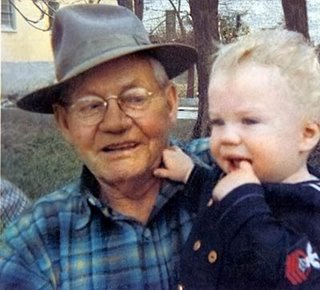Back in the early 1960s when I was an impressionable young nursing student, one of our instructors made a dire prediction. Petite, feisty, and outspoken, fire blazed in her eyes as she stalked the aisles of our packed classrooom, tossing a stub of chalk from one hand to another. Her words are as fresh in my mind today as they were more than 40 years ago.
"Before you reach my age, you'll see the beginnings of a nursing shortage in this country. It's inevitable."
None of us believed her, and thought her classroom teaching had veered off in the wrong direction. She'd been a young nurse during W.W. 2 and then Korea. Nursing schools in my home state still reaped the benefits of those war years, with classes bursting at the seams and quotas exceeded to the point that prospective students had to be turned away. I watched her eyes spark, watched that bit of chalk traverse an arc from hand to hand.
"Those shortages are bound to happen because nurses have a bad habit of eating their young. In this class, you're gonna learn not to do that or I'll die trying."
Eat their young? What the hell does that mean? She read our collective thoughts that first day and laughed, with very little humor in the sound of it.
"Older nurses will try to figuratively eat YOU and I will just be DAMNED if that is gonna happen!" She saw the furtive looks that passed between us while we wondered if she might be crazy and paused a couple beats before continuing in a softer, sadder voice. "OK. Here's what I mean. You've worked the floor for several weeks now. How many welcomed you with open arms?"
None for most. Only a couple in my recollection.
"How many tried to orient you to meds and treatments in any meaningful way?"
Again, none or maybe one was the class concensus.
"How many slept and left you on your own at night? Complained about your ignorance behind your back and joked about 'baby sitting students' just loud enough for you to hear? Ridiculed your nursing documentation and lack of knowledge about charting?"
She watched the light dawn as our minds ran through the weeks of floor assignments. I could think of two helpful staff members. One was my aunt, a nurse, the other an intern who welcomed any set of hands available in holding death or disease at bay.
"That's what I mean by 'eating their young.' If they don't make positive contributions in helping mold students into accomplished nurses, if they tease and ridicule and gripe instead of teaching in positive ways, I call that 'eating their young.' That isn't gonna happen on my watch!"
That instructor taught us, one scenario at a time, how NOT to be discouraged when older nurses put us down. She taught us how to find the information we needed to enhance our classroom education, how to gain experience and strength from every patient in our care. And most important of all, she provided step-by-step guidelines to prevent her students from eating their young when they became Registered Nurses. The philosophy she shared was simple: Do for others what you hope others will do for you. Have patience. Be kind. Make suggestions. Teach by example. Nurture. Help others become the best they can be.
Her prediction came true. There HAS BEEN a nursing shortage in our country. I often wonder if the nursing shortages in this nation have a bit to do with that long-standing human tendency to gripe and complain about others instead of nurturning.
Forty years passed and I moved from nursing to writing. That nursing instructor's words seemed appropriate for writers, also. I thought writing might be different, that writers might not eat their young, but it isn't. A few writers DO nurture and support their colleagues in many ways, are kindly and encouraging. Others publicly shame and slam inexperienced or unknown writers, zeroing in on every typo and tense shift with gusto. You can read such slams on message boards, on amazon, and a multitude of places around the web.
Granted, maybe losing a few writers through discouragement, slamming, and shunning can't be compared to losing nurses. Nurses, when they are at their best, benefit humanity. They labor selflessly in obscurity, saving lives and easing pain. But what of art, the miracle of words? What if the work of Chaucer, Shakespeare, Wordsworth, the Brownings, Cather, Camus, Dostoevsky, Hemingway, Morrison, Wiesel had been shunned and ridiculed out of existence before it gave voice to their times? Would that be a loss to humanity?


